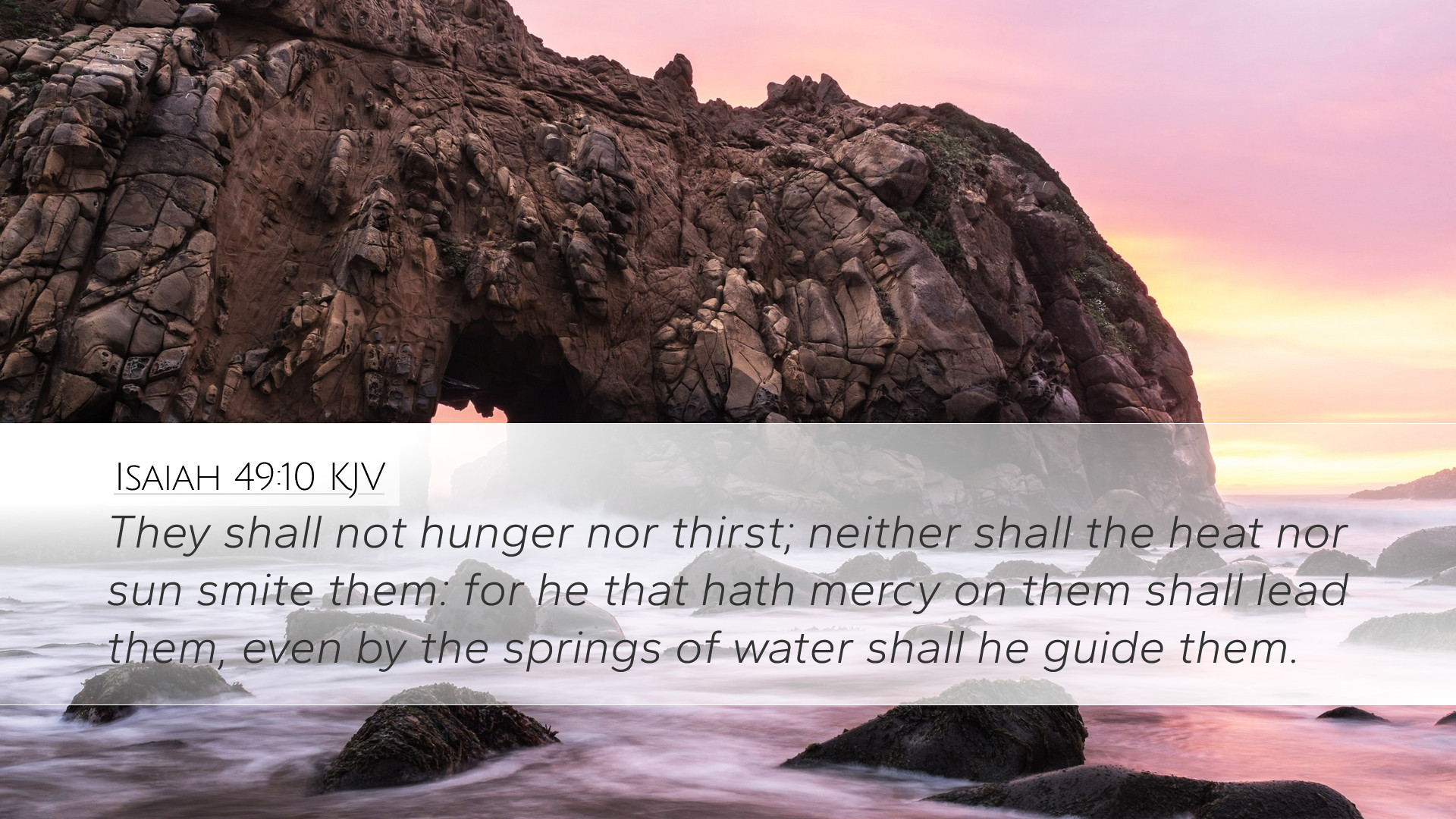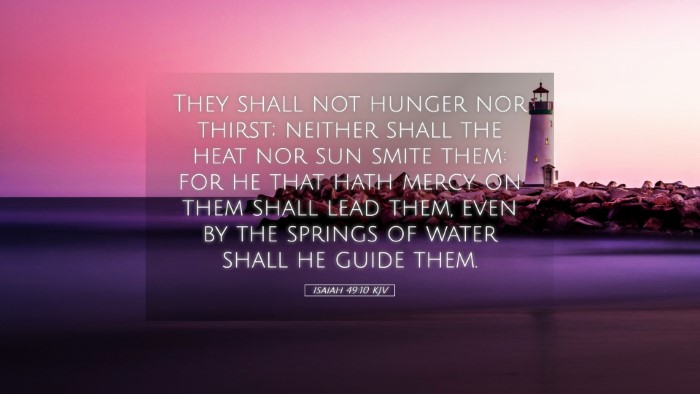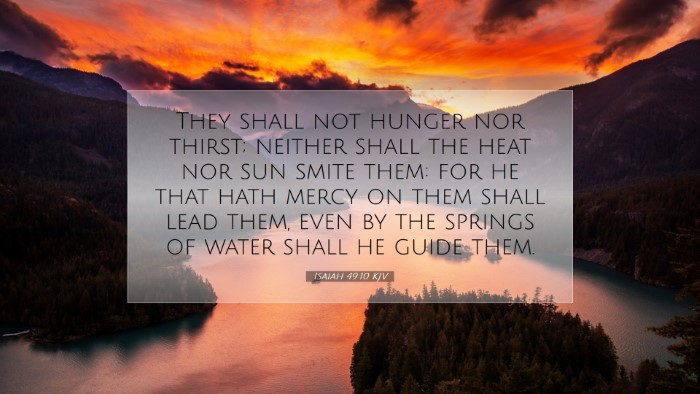Commentary on Isaiah 49:10
Isaiah 49:10 states: "They shall neither hunger nor thirst; neither shall the heat nor sun smite them: for he that hath mercy on them shall lead them, even by the springs of water shall he guide them."
Introduction
This verse from Isaiah encapsulates profound themes of divine provision, care, and guidance. It reflects God's promises to His people during times of desperation and need. Historical context enriches its insight, as the nation of Israel faces trials, and this promise serves as a beacon of hope.
Thematic Analysis
- Divine Provision: The promise of not suffering hunger or thirst signifies God's abundant provision. It parallels the physical needs of His people with spiritual sustenance.
- Protection from Harsh Elements: The heat and sun illustrate the trials and tribulations faced in a harsh environment. God's leadership provides protection and comfort amidst these challenges.
- Mercy and Leadership: God's mercy is highlighted as the foundation for His guidance. He leads His people, not just to survival but to flourishing.
Insights from Matthew Henry
Matthew Henry emphasizes the spiritual significance of this passage. He notes that the imagery of leading them by springs of water symbolizes the life-giving sustenance God provides. Henry points out that the “springs of water” serve as a metaphor for the joy and refreshment found in communion with God.
Henry also identifies the character of God as merciful and attentive, stating, "He who shows mercy is willing to take care of those he has compassion for." This deepens the understanding of God's relational nature with humanity, particularly emphasizing His readiness to support those in need.
Insights from Albert Barnes
Albert Barnes discusses the assurance of safety and satisfaction in this verse. He posits that this promise encompasses both a physical and a spiritual aspect. The assurance that they shall neither hunger nor thirst connects the needs of the body with that of the spirit, suggesting that God fulfills desires in all realms.
Barnes elaborates on the significance of guiding His people “by the springs of water.” He asserts that God’s guidance is not arbitrary but comes from love and mercy. He writes, "The comfort and joy of the believer will come from being led to the right source of life and sustenance."
Insights from Adam Clarke
Adam Clarke offers a detailed exposition on the implications of divine guidance. He emphasizes the contrast between the struggles of life and the peace found in God's guidance. Clarke remarks that the hunger and thirst symbolize deeper spiritual longings, hinting that the true satisfaction of life can only be found in God.
Clarke also speaks to the metaphorical use of leading by still waters, referencing Psalm 23. He notes that the imagery encapsulates divine tranquility and restoration, as God tends to the weary sojourners.
Practical Applications
For pastors, theologians, and students of scripture, this verse serves as a reminder of several key applications:
- Encouragement in Trials: In times of difficulty, Isaiah 49:10 provides a grounding assurance that God is present and promises care and sustenance.
- Spiritual Leadership: For those in leadership positions within the church, this passage can be a guideline for how to care for their congregations, emphasizing mercy and guidance.
- Missional Motivation: This promise can also inspire outreach to those experiencing spiritual hunger and thirst, calling believers to lead others to the life-giving waters of Christ.
Conclusion
Isaiah 49:10 serves not only as a prophetic declaration but also as an enduring promise of hope and guidance. The verses resonate deeply with those in despair, illustrating that God's provision transcends our current hardships. The insights from historic commentators provide a richer understanding of this text, enhancing our appreciation for God's unyielding mercy and guidance.
As we reflect on these words, may we continually seek the springs of water He offers, drawing strength and solace from His everlasting care.


